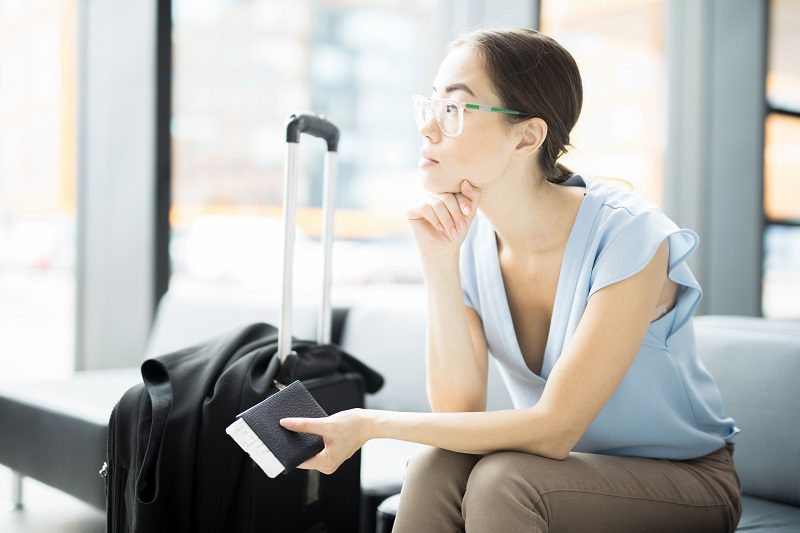
Everyone loves traveling because it gives you the opportunity to discover new things. But preparing for the journey isn’t always that fun. Thankfully, there are a number of tips and techniques you can use to make sure your travels go as smoothly as possible. Especially if you’re traveling for business reasons, and not to get some free days off, your enthusiasm may not be the same.
Frequent fliers know the struggle of always passing airports, so they share their favorite tips with us to ensure a smooth travel day. Here are 14 things smart travelers always do before a flight!
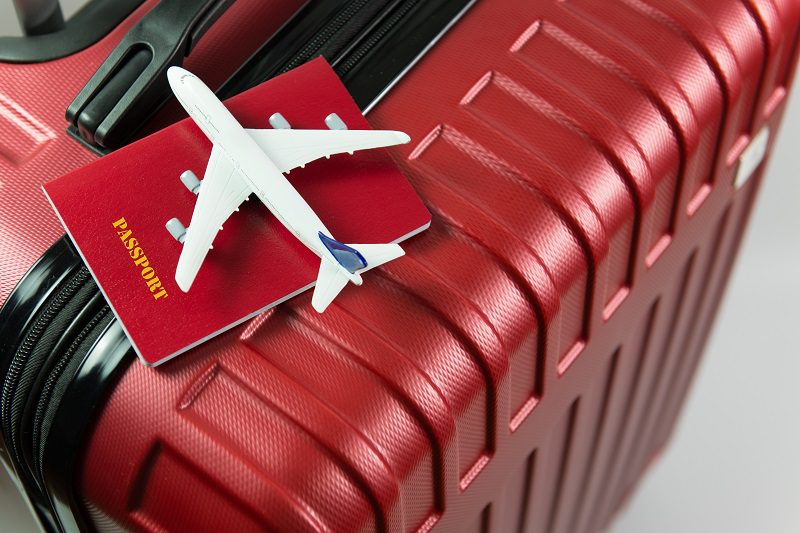
Passport protocol
First things first. If you’re traveling internationally, you won’t get anywhere without your passport. So it’s important to double-check if you have it in your carry on bag before heading to the airport.
“Make a copy of your passport to carry around at all times, and keep your real version in the hotel safe,” says Patricia Hajifotiou, who owns the small-group tour company The Olive Odysseys and has been leading tours in Europe for 21 years.
“I plasticize mine to reuse on subsequent trips.”
Protect against mishaps
There are many things that can go wrong while traveling, like flight delays and cancellations, lost luggage, accidents, emergency evacuations, and more. However, this doesn’t mean you should stay home and give up your dreams of seeing the world.
“When I am booking an international trip with my family, I make sure to pay for our flights, lodging, and rental car with a credit card that offers reimbursement for these inconveniences,” says Leah Althiser, owner of travel blog The Frugal South.
“Most premium travel rewards credit cards offer these benefits, some with an annual fee less than $100. These benefits can potentially save you thousands of dollars if something goes wrong on your trip.”
If you don’t own a credit card that offers these benefits, you can consider purchasing a separate traveler’s insurance.
Notify banks
Want to escape off the grid entirely? Even if you don’t tell your close friends where you’re headed, make sure to tell your bank.
“Banks take extra precautions to prevent credit card fraud and will block transactions that don’t fit your normal pattern,” says Tom Carr, founder and CEO of Preferred Vacations.
“If you don’t travel often, it’s best to let them know where you’ll be so you’re not in the checkout line or at a restaurant without a way to pay until you can speak with your bank.”

Avoid germs
Traveling through airports involves touching numerous surfaces, touch screens, buttons, escalator railings, security bins, armrests, seat belts, and other surfaces that countless people have touched before you.
“Clean germs off your hands as frequently as possible, and carry a 3-ounce bottle of antibacterial hand sanitizer for whenever you can’t wash with soap and water,” says Dr. Spangler.
“Also, consider bringing a small packet of antibacterial wipes when you’re flying to wipe down the surfaces that will be in your immediate vicinity for the duration of your flight, particularly the seat-back tray table, which has been shown to harbor more germs than the airplane bathroom.”
Prevent jetlag
If your circadian rhythm can be easily disturbed, a little foresight can help decrease your adjustment time.
“Set your watch to the arrival time zone as soon as you sit in the plane,” says Mitch Krayton, CTA, who owns Denver-based Krayton Travel.
“Then eat, sleep, and act like you are already in the time zone. This will help you manage jet lag and keep you ready to go on arrival.”
Put on compression socks
Compressing socks are life-savers and should be added in everyone’s wardrobe, even if they’re not sexy at all.
“Especially during a long flight, remaining sedentary for extended periods of time can introduce problems,” says Dr. William Spangler, Global Medical Director with AIG Travel, who has more than 30 years of emergency medical experience.
“One of the most common of these is deep vein thrombosis (DVT), which is the formation of blood clots, particularly in the lower leg or thigh. It doesn’t cause much pain, but when the clots break off and go elsewhere, they can create serious problems.”
Aside from compression socks, which help to increase circulation, Dr. Spangler suggests getting up at least every two hours, just to move your legs, even if it’s only in your seat. It will be even better to walk up and down the aisle for a few minutes, if possible.
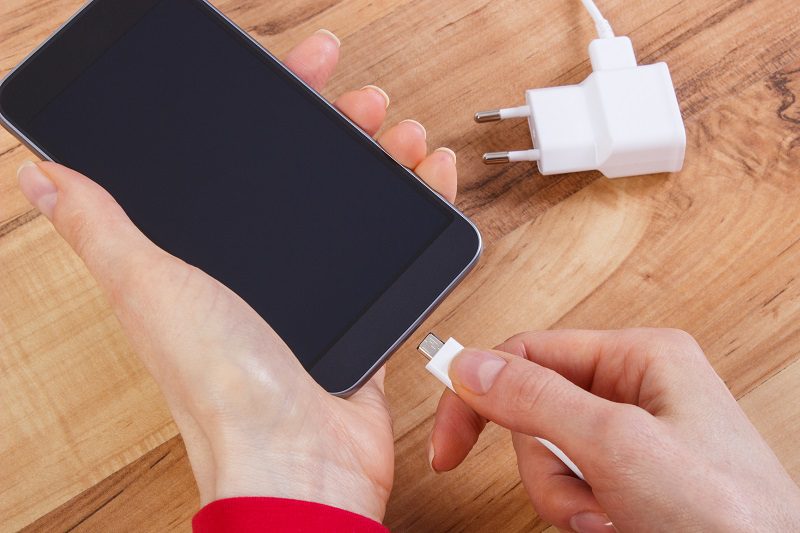
Charge electronic devices
Flying without any electronics in this day and age is almost unheard of unless you’ve run out of juice and downgraded back into the stone ages.
“Making sure your phone, laptop and other electronics are charged accomplish two things,” says Christian Eilers, founder of the travel site Dauntless Jaunter.
“First, it ensures you have enough power to keep you entertained or working during your flight. Secondly, it also forces you to know in advance where you have your batteries and cables, saving you from that last-minute scramble with the Uber waiting outside.”
Bring a portable charger with you just in case your battery wears out faster than you anticipated.
Sign up for TSA PreCheck
Reduced wait time and less invasive check while going through security would be great, right?
“If you’d prefer to minimize the hassle of the security screening, apply for the TSA PreCheck program,” recommends Jenny Smith, a frequent flier and founder of the blog How to Move to New Zealand.
“This program allows you to register in advance and complete an interview to join the PreCheck program. There’s also a small fee to join, but if you semi-frequently fly this can be well worth the perks of a shorter security line, not having to remove your shoes, and not having to take out your laptop or liquids.”
Real-time info
If you want to avoid those moments where you run all the way to the gate only yo find out it was switched to one much closer to where you started, here’s what you need to do.
“Sign up for flight updates on your phone,” says Alissa Musto, a professional traveling musician, and singer-songwriter.
“If your flight is delayed or security lines are long, you’ll get updates in real-time so you know what to expect when you arrive at the airport and can plan accordingly.”
Also, you need to sing up for text alerts and don’t forget to download your airline’s app, too.
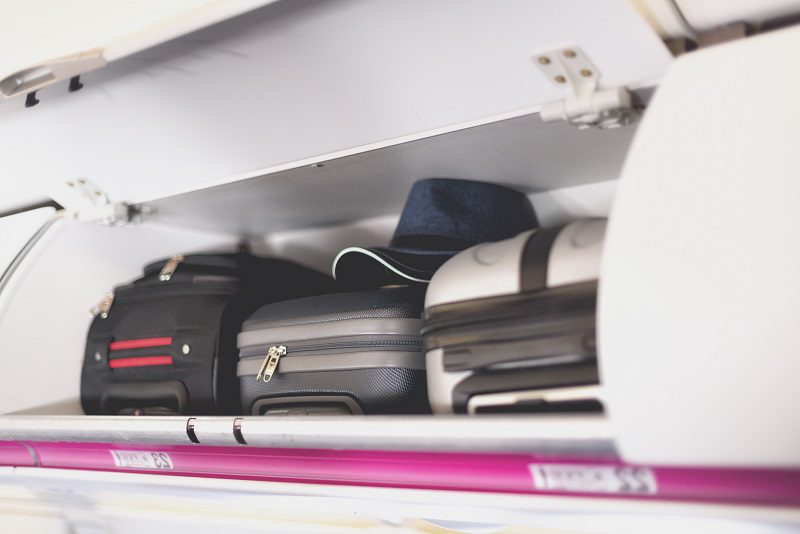
Carry on must-haves
Traveling with only a carryon is almost impossible, however, here are some things you mustn’t check.
“Pack your medication in your carry on,” says Jeff Miller, who co-owns the travel blog Our Passion For Travel with his wife and has visited 73 countries.
“If you are taking medication, bring it in your carry-on luggage. Depending on your destination, in the event of lost luggage, your medication may not be easily accessible or may cost a small fortune.”
He also suggests packing a change of clothes for you to have on board, just in case your luggage takes an accidental side trip and doesn’t arrive until the next day. The same thing goes for your passport, money, jewelry, and money.
Bring your own food
It’s best to travel with your own food unless you like the idea of an airplane sandwich or a greasy burger.
“Airport food is notoriously overpriced and nutritious options are hard to find,” says Betsey Banker, owner of the travel blog Midlife Millennials and former wellness educator.
“I plan ahead and bring my own snacks or meals. Nuts, fruits, and veggies are all good options. On a regular basis, I take my own salad in a gallon-sized sealed bag. Bringing your own food allows you to eat on your own schedule and according to your own dietary preferences, which is especially important on long days of travel, when you’re moving between time zones, and when you have short connections.”
Visit an airport lounge
An airport lounge can be your safe haven from all the chaos, especially if you have a long layover or need to take a long conference call.
“Take advantage of the airport lounges, because they’ll make your travel experience much less stressful,” says Yuichi Nishiyama, a pilot for All Nippon Airways.
“Not only are lounges a nice place to retreat from the hustle and bustle happening at the gates, but they have a variety of services from dining to shower facilities, to designated workspaces.”
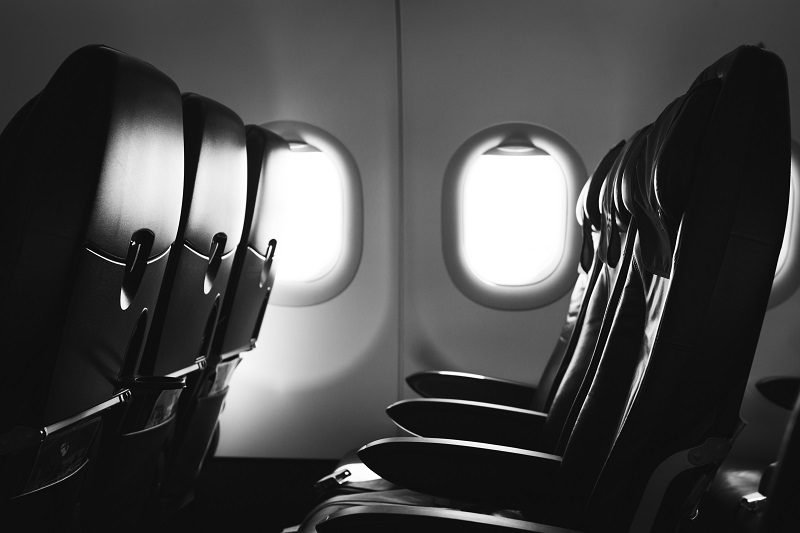
Choose seats wisely
It’s awful to find out you’re seated right next to the bathroom, inadvertently booked a seat without a moveable armrest, or have less legroom thanks to an equipment box.
“Refer to website Seat Guru when booking your seats on your flight,” says Victoria Langmead, Safari Expert for travel company Scott Dunn. You’ll be able to consult a seat map for each specific aircraft and determine the ideal seat selection for your preferences. Don’t miss these travel tips that are safe to ignore.
Hydrate ahead of time
It’s normal to feel your nose and throat dry, your lips chapped and your hands turn scaly on a flight, according to the Cleveland Clinic, because at 35,000 feet, the air has very little moisture.
“I always make sure to hydrate well before a flight,” says Anisa Alhilali, who co-owns the blog Two Traveling Texans and has stamps from 41 countries in her passport.
“I try to drink as much water as possible for 24 hours before I travel. I also make sure to have water with me on the plane. It’s best to bring your own refillable water bottle, and fill it up after going through security, since buying water at the airport can be expensive.”
Moreover, stay away from caffeine and alcohol on your flight, because it will also help keep you hydrated.
























